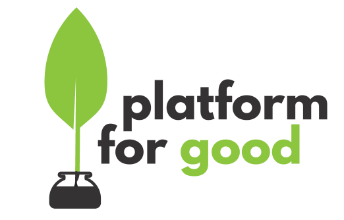Today’s employer-employee relationship is based on an outdated and frustrating model of dependency. The employer has money; the employee needs money, and the employee is therefore dependant on the employer for money to live.
As an obvious result, the employee eventually resents the employer.
What if a company stopped the madness and flipped this upside down? What if a company saw itself as a platform for you to use for your own good and for you to create a financial situation for yourself that meant you no longer needed the employer?
What if the goal of the company was to enable you to be independent rather than dependent?
A Platform for Financial Independence
Let’s face it, a lot of people merely co-exist with their companies. They need a paycheck, so they grind along in a place they don’t love. Or they jump around from company to company seeking that loving feeling.
What if the company stopped pretending this tension did not exist and instead embraced it? What if the company openly discussed the individual’s financial motivations with them and created a system for helping them achieve their goals?
A few years ago I started reading blogs in what is now known as the Financial Independence, or FI, community. I became fascinated by the clarity of thought many of the people had as they adapted their lives to achieve financial freedom. I began to talk about the concepts in my own company. At one point I sent out a simple email inviting anyone to join me for a conversation about career, money, and financial independence. I was blown away to show up to a room so full that people were lying on the floor and lining the walls.
It was if people said, “Finally! a company that realizes I want to build a life so I can be free from having to work.” Even if we love our jobs and our companies, we still want to be free at some point to not HAVE to work. And we don’t want to wait 45 years to achieve that.
I think this concept could be a powerful idea to attract and retain employees. But even deeper, I think this could be a tremendous benefit to society to have a company, and hopefully someday companies, be as intentional about helping people advance financially as the individuals are themselves.
Core Components of an FI-Enabled Company
If a company became intentional about helping people become financially strong and eventually independent, I think it would actually make the company stronger, too. Let’s take a look at a few ideas to help companies and teams make this shift:
Financial literacy as core training.
If the mission of our company is to help people gain financial strength, then let’s teach the concept and principles. Let’s have a new hire orientation course on financial matters. Let’s have annual training on investing, paying off debt, selecting employee benefits, buying a house, putting your kids through college.
A literal platform for celebrating.
What if we create an actual platform where we could gather and celebrate FI milestones? Things to celebrate:
- Completion of FI basics course (complete with award)
- Paying off a student loan (ring a bell, take a photo, have some cake!)
- Paying off a credit card
- A ceremony when someone saves up 6 months or a year’s worth of expenses
- “I Quit” ceremonies. Instead of pretending people don’t quit, celebrate it. When people have the funds saved up to take a few months off or the rest of their lives off, bring out the band and celebrate it!
Increased savings matching.
The company should have above average matching of 401(k) and Health Savings Accounts (HSA). Generally speaking, companies that offer a 401(k) contribute about 3% of your compensation in the form of a match. You put in a dollar, they put in 50 cents, and they cap the company contribution out around 3% of your total pay. What if an FI-based company did much more than the average and found ways to promote it so people got excited and participated at high levels? And what if the company continuously provided education on how to invest that money, how the tax benefits work, etc. Same for HSA accounts.
Career coaching for everyone.
After all, this company experiment is about advancing our associates toward their goals. A platform for good. Enable that with routine feedback and advancement tips.
Side hustle as a company feature.
Create some way to encourage side hustles. Maybe even for the company. Many managers spend their time apologizing for people working too hard. What if extra work was seen as a way for people to make extra money and pay off credit card debt or get to FI sooner?
Shared jobs.
Financial independence is not all about finances; it’s also about independence and flexibility. It’s not about spending years or decades amassing a huge financial reservoir. It is about freedom to do what you want. Create a system for jobs to be shared so people can flex up and down their time to live the life they want. Sometimes we want to work hard and earn more; other times we want a break.
Company financial literacy.
In addition to classes on personal finance, have classes on the finances of the business. Treat people with respect by sharing financial information with them. I think this would lead to people empathizing with the budgetary decisions that go into running the business, gaining their input, and allowing the group to share the ups and downs together.
No employment agreements.
No non-competes. If someone wants to quit and go someplace else, no harm no foul. Both sides tried, but it didn’t work out. Smile and move on. Build flexibility and freedom into the employment model.
Benefits for the Individual
Work-related stress takes a massive toll on many people and their families. All you have to do is watch a reality TV show about flipping houses or restoring vintage cars to witness the extreme pressure that comes with projects with tight deadlines. We often think it’s somehow unique to our situation or company, but stress is a universal issue.
If a company had an open dialogue with their employees about the personal financial pressures and financial aspirations of the individual, I believe it would go a long way toward helping us all manage that stress. If the individual could have an end in sight to all the work, then it would likely help frame the pressure in a more productive light.
Working for a company that helps us map out our financial goals and aggressively attain them would, I believe, lead to a lowering of the negative health effects of stress, and in turn improve our physical and mental health. I’m not saying it would solve all ills, but it would reduce the negative effects and make room for positive improvement.
Helping an individual and a family gain solid financial footing will put them in a position to do more in their community, support more organizations, and take more risks.
The list of benefits are long and somewhat obvious.
Benefits for the Company
Companies are made up of groups of people. If those people are frustrated at being dependant on the company and the relationship is very one-sided, then the company won’t attract and retain the best people. The people will also not do their best work.
However, if the company exists to further the personal and financial goals of the people who make it up, then it will attract and retain great people. Those people will be their most creative and do their best work over a longer period of time.
In a recent talk, Yvon Chouinard, the founder of Patagonia, said that his company receives over 900 applications for every open position. That inbound enthusiasm is generated by the authentic culture at Patagonia. What is the economic value to that business to have such competition for each open position? What is the value to having lower turnover, less retraining, less onboarding costs, more consistency, greater job satisfaction and competency that comes with people who genuinely love their work, their co-workers, and leadership?
There are a lot of people working hard to make their company a great place to work. There are programs and initiatives aimed at helping people be successful in their careers. Why not take the next step, albeit a big one, and make a key element of your company’s purpose to enable people to become financially independent?
The obvious downside of a company helping people become independent is that people would eventually quit. In my mind that is not a downside at all—that would be fantastic! People quit anyway. They quit out of frustration or lack of opportunity. In fact, the average tenure at the 10 biggest companies in tech is only 1.8 years! Why not help them be happy at work so when they do leave it’s because they graduated to a healthy next phase of their life? You get 4, 5, even 10 years of someone’s focused passionate effort, and then you bring in someone else to experience the same thing. That’s way better than having a bunch of people who hate your company and are dreading the next 20 years of being dependant on it.
In my previous post I shared some thoughts on the first thing I would do if I were starting a new company. Those ideas involved creating a unique physical environment. The second thing I would do if I were starting a company would be to create a core value around helping people reach their financial goals. A platform for financial independence. Given the rapid growth of the FI movement, I think other companies will see this as well, and before too long, we’ll begin to read stories about FI-enable companies.

